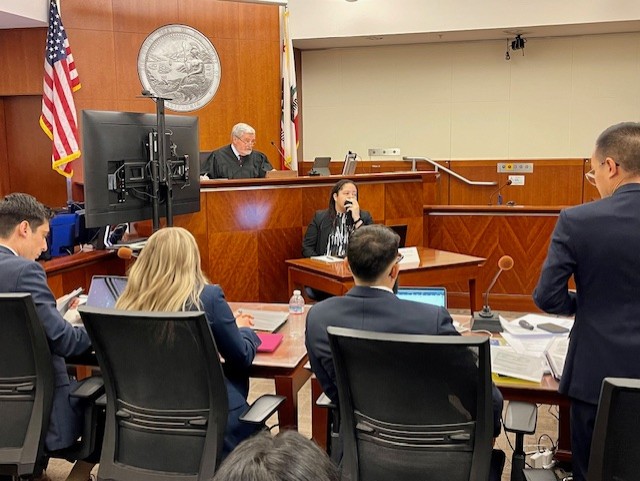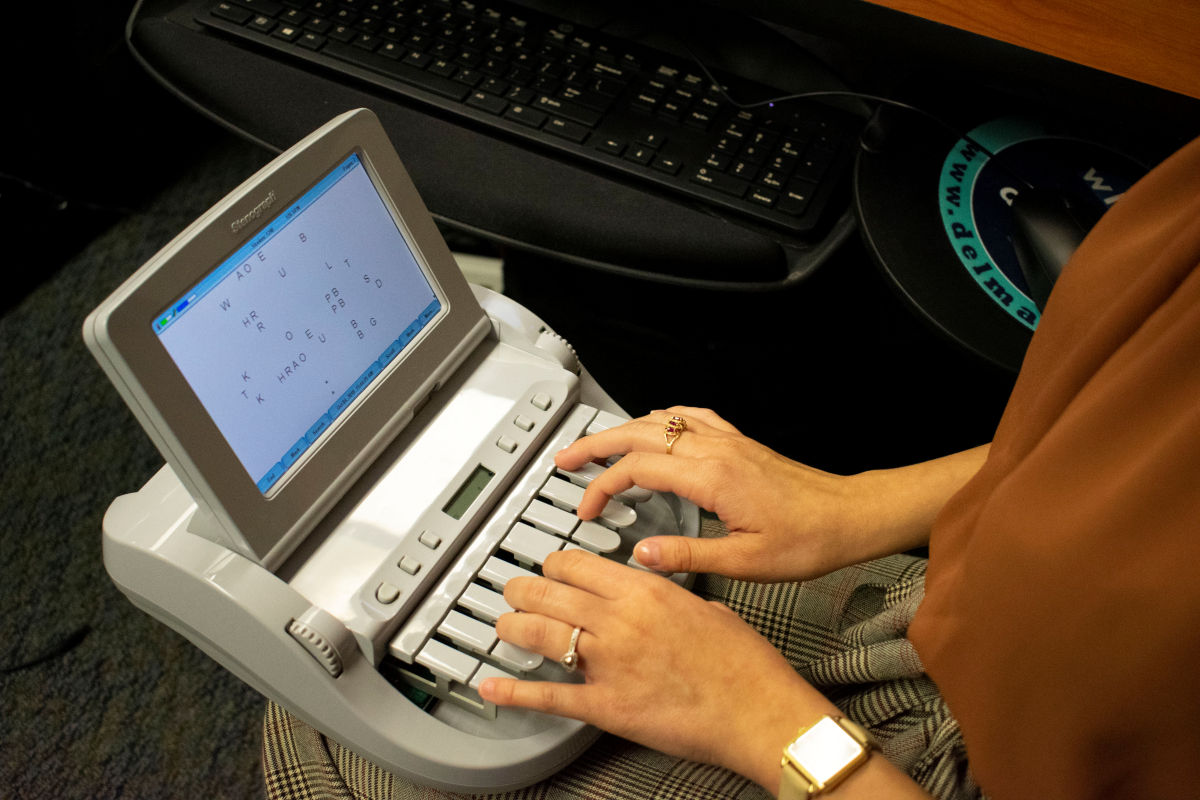Comprehending the Crucial Duty of Court Reporting in Legal Process
Court reporting is usually forgotten, yet it's necessary in lawful procedures. Let's explore the fundamental functions of court coverage and its importance in the legal landscape.
The History of Court Reporting
Court reporting has an abundant background that goes back to old worlds, where scribes utilized different techniques to catch talked words. The earliest kinds of shorthand emerged in Greece around 400 BC, permitting philosophers and politicians to videotape speeches swiftly. As you move via history, you'll discover that the Romans took on similar strategies, fine-tuning them to record legal procedures. By the 16th century, contemporary shorthand systems began to materialize, enabling stenotype reporter to create accurate records effectively.
In the 19th century, the invention of the typewriter revolutionized the career, making it less complicated to develop readable records. The introduction of steno machines in the 20th century better progressed court coverage, permitting real-time transcription during trials. Today, court press reporters play a significant role in lawful procedures, making sure that every word talked in the court is precisely documented. Understanding this background highlights the relevance of court reporting in maintaining a reasonable lawful system.
The Abilities Required for Court Reporters
As a stenotype reporter, you require strong inputting abilities to stay up to date with the fast-paced discussion of legal process. Your capability to pay attention attentively is equally as important, ensuring every word is caught accurately. Understanding these skills is crucial to delivering specific and reputable transcripts.
Competent Typing Capabilities

Solid Listening Abilities
Solid paying attention abilities are important for court press reporters, as they should accurately record talked words in actual time. This ability helps you separate between speakers, comprehend lawful lingo, and adhere to complex discussions. Ultimately, strong paying attention skills make you an important asset in lawful procedures, making sure clearness and precision in the court record.
The Technology Behind Court Coverage
In the domain of legal proceedings, modern technology plays a necessary duty in enhancing the accuracy and efficiency of court reporting. You're likely accustomed to the traditional stenotype machine, yet modern-day stenotype reporter now make use of sophisticated software program that incorporates with these equipments, allowing real-time transcription. This indicates you can have instant access to the records as the process unfold.
Digital audio recording is another technological innovation that's gaining traction. It catches every talked word, assuring nothing is missed. Some reporters make use of voice acknowledgment software, which can assist streamline the transcription procedure, though it still calls for human oversight for accuracy.
In addition, cloud-based storage permits simple gain access to and sharing of records, boosting partnership amongst lawful teams. By leveraging these technologies, stenotype reporter can offer high-quality, timely records that are vital for the legal process. Embracing this technology not only improves your understanding however likewise ensures integrity in lawful paperwork.
The Court Reporting Process

As legal procedures unravel, the court reporting process ends up being necessary in catching every information precisely. You'll find that a stenotype reporter plays a vital function by recording spoken words right into composed text in real-time. When you enter the court room, the reporter is currently prepared, outfitted with specialized devices like stenographic machines and audio recording tools.
During the process, the press reporter listens diligently, inputting out everything claimed, from witness statements to why not check here attorneys' arguments. You might discover them pausing periodically to ensure clearness or to request a repeat if something wasn't clear. After the session, the reporter reviews the transcript, making required edits for readability.
This entire procedure not just guarantees a comprehensive record however likewise prepares you for future reference throughout charms or case testimonials. In the busy atmosphere of a courtroom, the court reporting process is essential for preserving an exact account of events.
The Value of Precision in Transcripts
While a court reporter's main duty is to transcribe talked words, the precision of these transcripts is important for the stability of lawful proceedings. When you're entailed in an instance, you rely upon precise paperwork to understand the occasions and debates offered. Any type of mistakes in transcription can lead to misunderstandings, false impressions, or also wrongful judgments.
Exact records assure that every information is caught, giving a dependable record for judges, attorneys, and juries. This level of detail is vital during appeals or when referencing previous testaments. If a records has errors, it can weaken the entire legal procedure, possibly impacting results.
Additionally, precise transcripts support the rights of all parties involved, advertising justness and openness. So, whether you're a legal representative preparing for test or a witness assessing your testament, you can trust that the court reporter's ability in precision plays a significant duty in your instance's success.
The Duty of Court Reporters in Various Lawful Settings
Court press reporters play a vital function in browse around this site different legal setups, from trials to depositions and lawful hearings. You'll find that their work guarantees every talked word is accurately recorded, which is vital for the lawful process. Recognizing exactly how their responsibilities vary throughout these atmospheres can highlight their impact on the justice system.
Court Reporters in Trials
In any type of lawful test, you'll find that court press reporters play a crucial duty in recording the proceedings with accuracy and precision. Court reporters have to maintain emphasis and rate, commonly utilizing specific devices to maintain up with busy dialogue. Eventually, court press reporters help copyright the justice system, guaranteeing transparency and accountability throughout tests.
Depositions and Legal Hearings
Beyond tests, court reporters additionally play a crucial duty in depositions and legal hearings. Court press reporters give real-time transcription solutions, enabling attorneys to follow along and resolve any type of issues quickly. In brief, court press reporters are essential in preserving the honesty and clearness of the legal document in depositions and hearings.
Future Patterns in Court Coverage
As innovation continues to progress, the future of court coverage assures to be shaped by innovative tools and methods that improve precision and performance. You'll likely see raised use of man-made knowledge and real-time transcription solutions, streamlining the reporting process. These improvements can aid you access transcripts quicker, which can be important for your lawful methods.
Furthermore, integrating video clip conferencing and remote coverage will become more usual, permitting you to get in touch with court press reporters from anywhere (court reporting). This flexibility can make depositions and hearings more easily accessible, saving both time and resources
You'll likewise see a focus on electronic recordkeeping, which streamlines the storage space and retrieval of records. With cloud-based options, you'll have the ability to share papers safely and work together with your legal team in real-time.
Frequently Asked Questions
What Is the Ordinary Salary of a Court Reporter?
The average wage of a stenotype reporter differs by area and experience, but you can expect it to vary from around $50,000 to $80,000 every year. Several factors affect this income, consisting of field of expertise and demand.
Exactly how Do I End Up Being a Qualified Court Press Reporter?
To become a licensed court press reporter, you'll require to complete a court reporting program, pass a qualification exam, and gain functional experience. It's essential to remain updated on market criteria and proceeding education and learning demands.
What Sorts of Situations Do Court Reporters Cover?
Stenotype reporter cover various instances, including criminal tests, civil claims, depositions, and settlement hearings. You'll locate them documenting every little thing, making sure exact records for courts, attorneys, and events involved, catching every word talked in legal setups.
Are Court Reporters Required to Have a Degree?
Yes, court reporters usually require a degree or qualification in court reporting. Several programs offer specialized training, guaranteeing you gain the abilities necessary for precise transcription and lawful discover here paperwork in various setups.
Can Court Reporters Work From Another Location?
